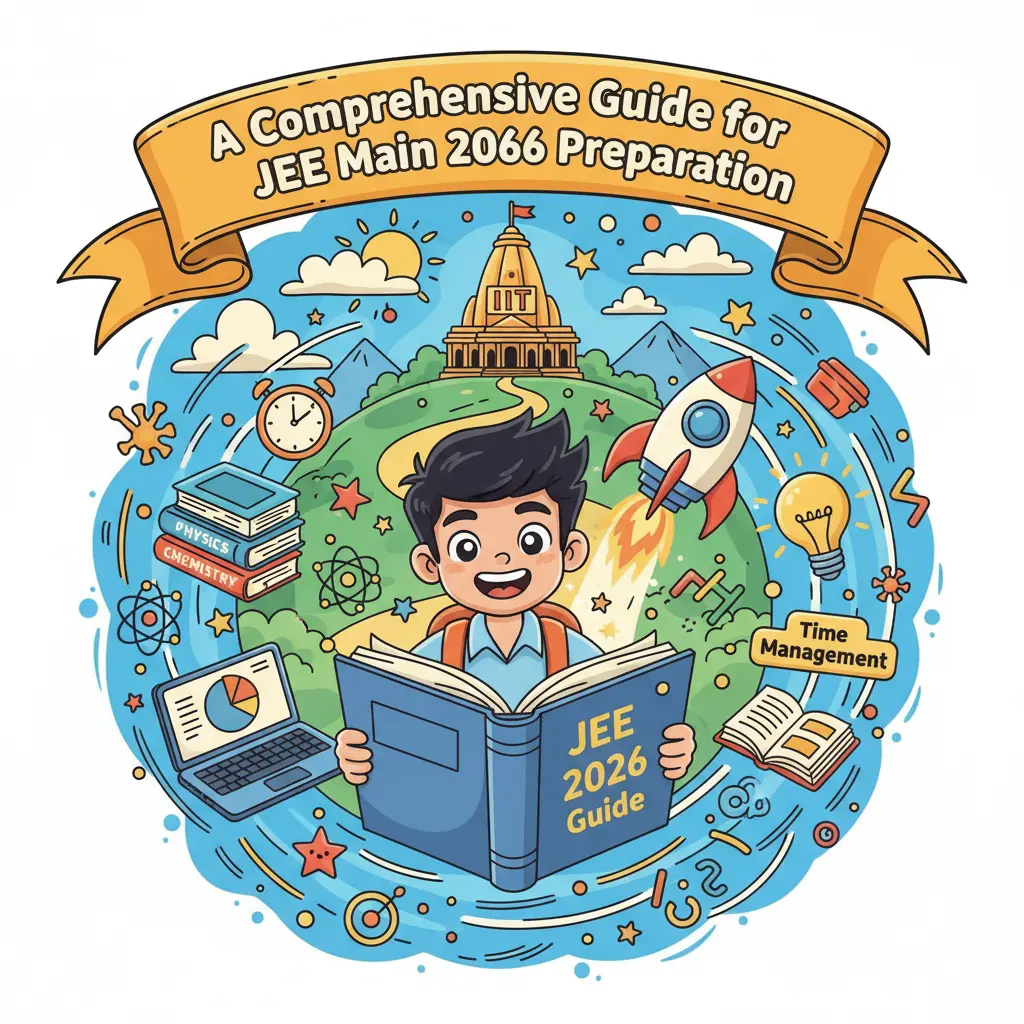JEE Main 2026: Complete Syllabus, Chapter Weightage & Prep Guide | TownMate
Preparing for the Joint Entrance Examination (JEE) Main in 2026 can feel like an overwhelming task. With a vast syllabus spanning Physics, Chemistry, and Mathematics from both Class 11 and 12, it's easy to feel lost. However, the key to a high score lies not just in hard work, but in smart work. A strategic approach that involves understanding the complete syllabus and recognizing which chapters have historically carried more weight is crucial.
This guide provides you with a complete roadmap for your JEE Main 2026 preparation. We'll delve into:
- The Official Syllabus: A detailed breakdown of the topics you need to master.
- Chapter-wise Weightage: An analysis of the most important chapters based on previous exams.
- Prioritization Techniques: Tips on how to focus your energy on high-weightage chapters.
- Proven Study Strategies: Effective methods to optimize your learning and boost your score.

Official Syllabus for JEE Main 2026
While the official syllabus for JEE Main 2026 is yet to be released by the NTA, the 2025 syllabus serves as a reliable blueprint. Historically, changes are minimal, so you can confidently start your preparation based on the topics below.
Physics
Class 11: Physics and Measurement, Kinematics, Laws of Motion, Work, Energy and Power, Rotational Motion, Gravitation, Properties of Solids and Liquids, Thermodynamics, Kinetic Theory of Gases, Oscillations and Waves.
Class 12: Electrostatics, Current Electricity, Magnetic Effects of Current and Magnetism, Electromagnetic Induction and Alternating Currents, Electromagnetic Waves, Optics, Dual Nature of Matter and Radiation, Atoms and Nuclei, Electronic Devices.
Chemistry
Physical: Some Basic Concepts in Chemistry, States of Matter, Atomic Structure, Chemical Bonding, Thermodynamics, Solutions, Equilibrium, Electrochemistry, Chemical Kinetics.
Inorganic: Classification of Elements, Hydrogen, s-Block, p-Block, d- and f-Block Elements, Coordination Compounds.
Organic: Basic Principles, Hydrocarbons, Organic Compounds Containing Halogens, Oxygen, Nitrogen, Polymers, Biomolecules.
Mathematics
Sets, Relations, and Functions, Complex Numbers, Matrices and Determinants, Permutations and Combinations, Binomial Theorem, Sequences and Series, Calculus (Limits, Continuity, Differentiability, Integral), Differential Equations, Coordinate Geometry, Three Dimensional Geometry, Vector Algebra, Statistics and Probability, Trigonometry.
Check the Official Syllabus
For the most accurate and up-to-date information, always refer to the official syllabus released by the NTA. Check their website for the latest announcements and PDF downloads.
Visit Official NTA Website 🔗Chapter-Wise Weightage: Focusing Your Efforts
Analyzing past papers helps identify high-yielding topics. Use these tables to prioritize your study plan.
*Disclaimer: This data is an approximation based on previous years' trends and can vary.*
Physics Weightage
| Chapter / Unit | Questions | Importance |
|---|---|---|
| Mechanics | 6 - 7 | |
| Electrostatics & Current | 5 - 6 | |
| Magnetism & EMI | 4 - 5 | |
| Modern Physics | 4 - 5 | |
| Heat & Thermodynamics | 3 - 4 | |
| Optics | 2 - 3 |
Chemistry Weightage
| Chapter / Unit | Questions | Importance |
|---|---|---|
| Coordination Compounds & Block Elements | 5 - 6 | |
| Organic Chemistry (GOC, Hydrocarbons) | 4 - 5 | |
| Thermodynamics & Kinetics | 3 - 4 | |
| Chemical Bonding & Atomic Structure | 3 - 4 | |
| Solutions & Electrochemistry | 3 |
Mathematics Weightage
| Chapter / Unit | Questions | Importance |
|---|---|---|
| Calculus (Differential & Integral) | 7 - 8 | |
| Algebra (Matrices, Complex Nos, etc.) | 6 - 7 | |
| Coordinate Geometry | 5 - 6 | |
| Vector & 3D Geometry | 4 | |
| Probability & PnC | 2 - 3 |

Winning Study Strategies to Maximize Your Marks
Having a solid strategy is as important as covering the syllabus. Here are some proven techniques to enhance your preparation.
1. Craft a Realistic Timetable
- Be Consistent: Dedicate a fixed number of hours to self-study every day.
- Subject Rotation: Avoid monotony by rotating between Physics, Chemistry, and Mathematics.
- Set Goals: Create daily and weekly targets to track your progress and stay motivated.
2. Subject-Specific Approaches
- Physics: Focus on building a strong conceptual understanding. Practice a wide variety of numerical problems.
- Chemistry: Use mnemonics for Inorganic, understand mechanisms for Organic, and practice numericals for Physical.
- Mathematics: Practice is the only key. The more you solve, the faster and more accurate you become.
3. The Power of Mock Tests and Analysis
Regularly take mock tests under exam conditions. More importantly, spend time analyzing your performance to identify weak areas and recurring mistakes.
4. Effective Revision Techniques
Use spaced repetition to retain information long-term. Create concise short notes and flashcards for quick revision of important formulas and reactions.
5. Recommended Books and Resources
While NCERT is your foundation, supplement it with standard reference books like H.C. Verma for Physics, Morrison & Boyd for Organic Chemistry, and R.D. Sharma for Mathematics.
Your Action Plan Starts Now!
The journey to cracking JEE Main 2026 is a marathon, not a sprint. Start early, stay consistent, and work smart. By understanding the syllabus, analyzing chapter weightage, and following a disciplined study plan, you can significantly enhance your chances of success. Remember, every expert was once a beginner. Take that first step today! 🚀
